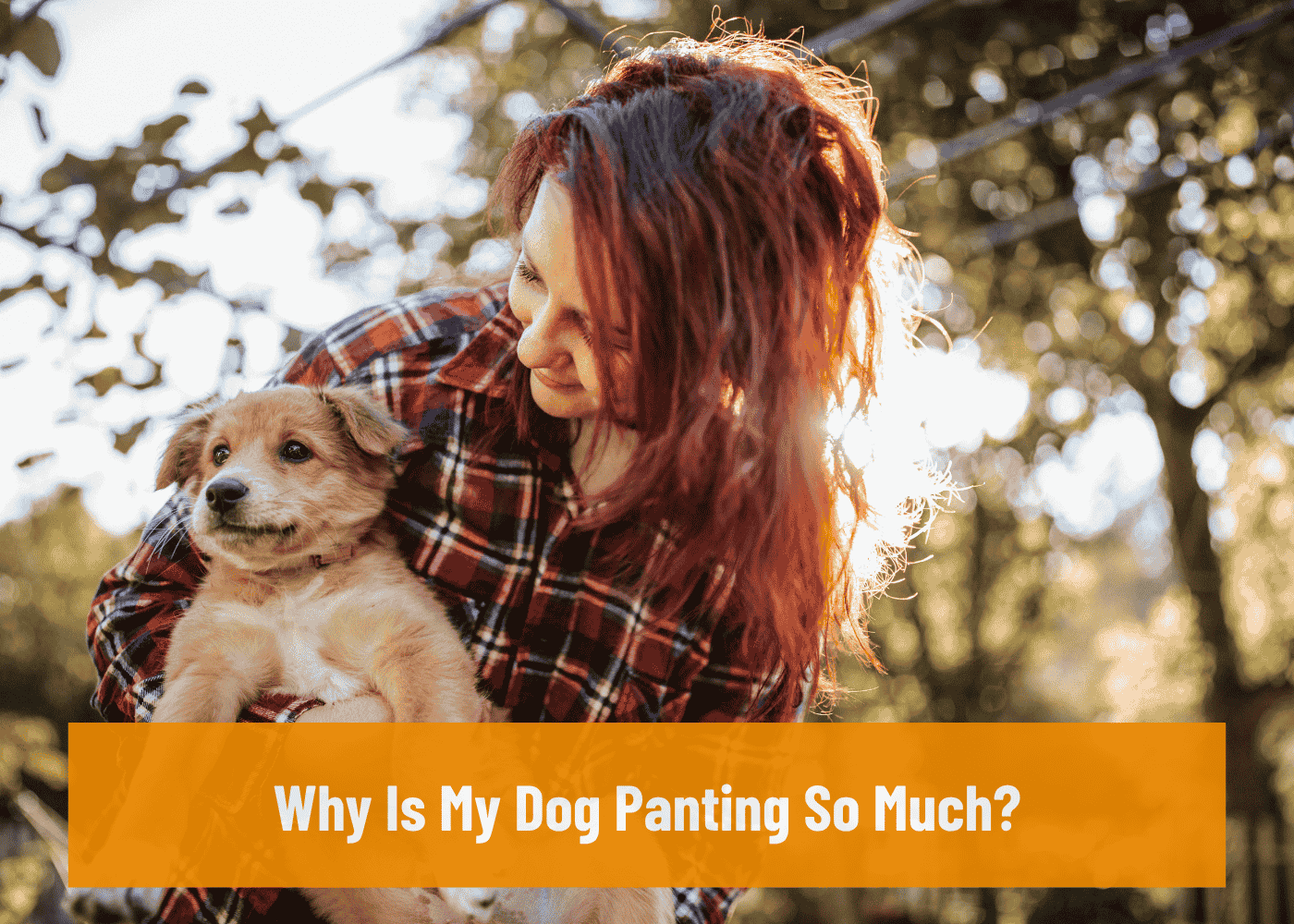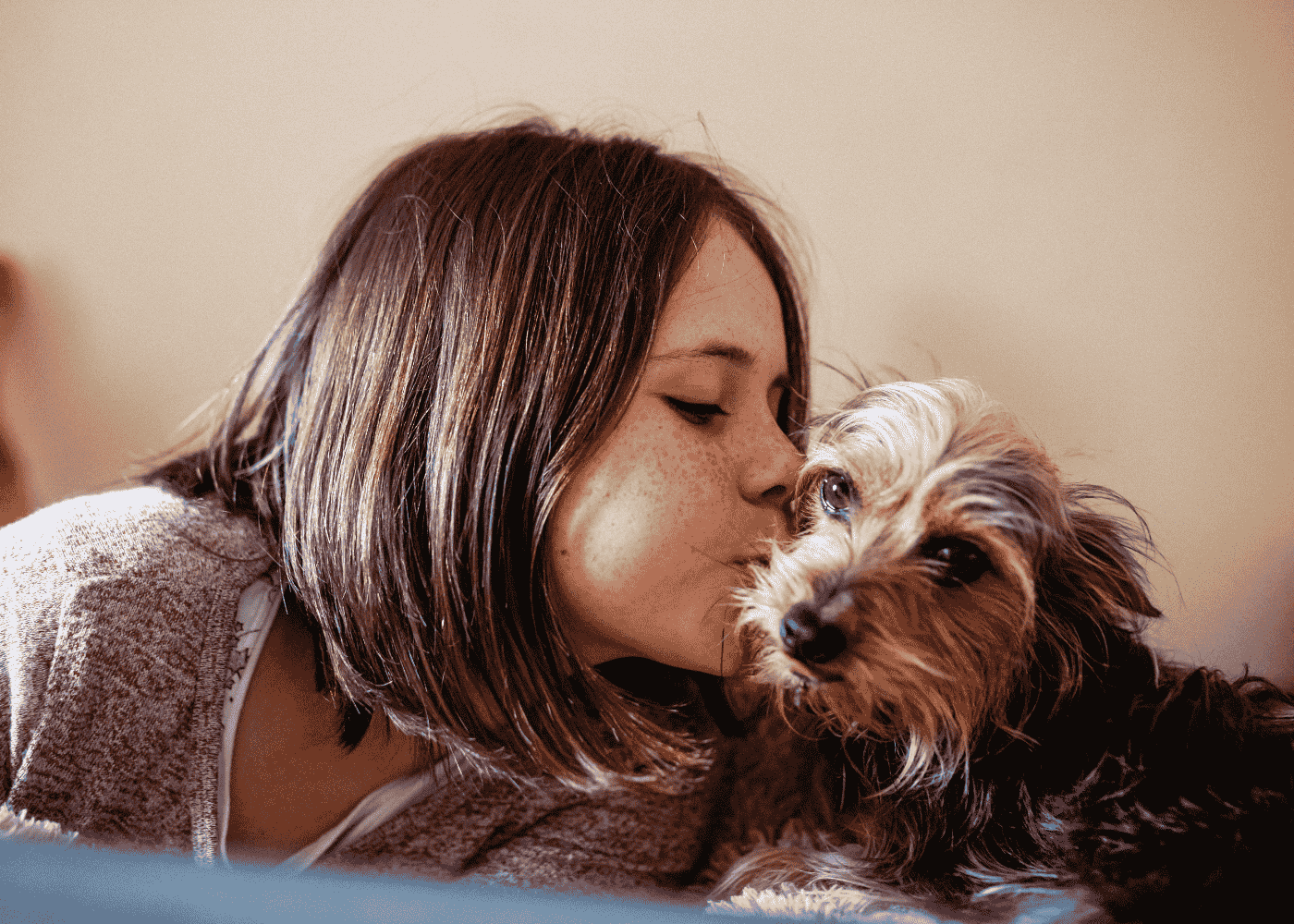Why Is My Dog Panting So Much? Causes, Concerns, and Solutions for Washington Pet Owners
Dogs pant. It’s normal. But when your furry friend starts panting heavily for no clear reason, especially while resting or during the cool Pacific Northwest evenings, you may find yourself wondering, “why is my dog panting so much?” As a pet owner in Washington, it’s crucial to know when panting is a harmless behavior and when it might be signaling an underlying problem.
Let’s explore what’s normal, what’s not, and what steps you can take to ensure your pup stays happy, healthy, and calm.
What Does Normal Dog Panting Look Like?
What causes dogs to pant normally?
Dogs don’t sweat like we do. Instead, they rely on panting to regulate their body temperature. Normal panting serves a few healthy purposes:
-
Thermoregulation: Dogs pant to cool themselves when they’re hot.
-
Playtime excitement: After a run around your Bellevue backyard or a game of fetch in Tacoma’s dog parks, panting is completely expected.
-
Mild stress or anxiety: Even something as simple as a vet visit or new visitors can cause temporary, harmless panting.
If you’ve asked yourself lately, “why is my dog panting so much after a simple walk?” this section may already provide your answer.
When is panting not a concern?
Not all panting means something is wrong. It’s usually fine if your dog:
-
Recovers quickly after exercise or excitement
-
Stops panting after resting or cooling off
-
Pants with a relaxed demeanor, not pacing or drooling excessively
What Are the Signs of Excessive Panting in Dogs?
While panting is a natural behavior, certain red flags may indicate a deeper issue. It’s common for pet owners to wonder why is my dog panting so much when their pet seems otherwise fine. Recognizing subtle signs can make a big difference.
Duration and frequency red flags
If your dog is panting constantly without exertion or heat, take note. Prolonged panting is one of the earliest signs that something is off.
Panting with other symptoms
Watch for:
-
Drooling
-
Whining or restlessness
-
Pacing or agitation
-
Lethargy or unusual behavior
These could signal pain, distress, or medical complications affecting your dog’s health.
Nighttime panting and disrupted sleep patterns
Does your dog pant heavily at night? This is a common concern in places like Olympia or Federal Way where temperatures cool at night. Nighttime panting could be tied to anxiety, pain, or illness. If you’ve been asking why is my dog panting so much at night, it’s time to look closer.
Why Is My Dog Panting So Much? 13 Common Causes
Overheating or heatstroke
Even in Washington’s mild summers, dogs can overheat quickly. Lack of shade during walks in Auburn or hot car rides in Kent can be dangerous. Unchecked heat can quickly progress to heatstroke, a serious emergency requiring fast response and vet care.
If you’re wondering why is my dog panting so much even indoors, it may be an environmental factor you haven’t considered.
Pain or injury
Dogs often hide pain. Panting may be one of the only outward signs of an injury or internal discomfort.
Anxiety or fear
Dogs scared of thunder, fireworks in Renton, or loud trucks in Seattle might pant due to stress.
Heart disease
Heart issues can affect a dog’s breathing. Panting, especially during mild activity, may be an early sign.
Respiratory conditions
Kennel cough, pneumonia, or lung issues often come with labored panting and abnormal breathing patterns.
Cushing’s disease
This hormonal disorder is common in middle-aged and senior dogs and often causes excessive panting, hair loss, and increased thirst. Signs of Cushing’s disease may also include frequent urination and a bloated abdomen.
Anemia
A dog with low red blood cells may pant more because their body is working harder to get oxygen to the tissues.
Obesity
Overweight dogs pant more due to the added stress on their joints and cardiovascular system. Pet obesity is a growing issue even in health-conscious cities like Bellevue.
If you’re asking why is my dog panting so much after a short walk, excess weight could be a factor.
High fever or infection
Infections or illnesses may cause fever, and dogs pant to reduce their body temperature. This kind of heavy breathing helps with thermoregulation during fever spikes.
Medication side effects
Some medications, including prednisone or opioids, can cause increased panting as a side effect. If you notice sudden heavy panting after starting new medications, consult your vet promptly.
Allergic reactions
Exposure to allergens such as certain foods, plants, or even household cleaners in places like Gig Harbor or Puyallup can trigger sudden panting.
Poison ingestion or toxic exposure
If your dog ingests something toxic, panting might be one of the first signs before vomiting or seizures set in.
Senior dog behavior changes
Older dogs may pant more due to arthritis pain, cognitive dysfunction, or slower metabolism. With aging pets, attentive care and environmental comfort are essential.
When Should I Be Concerned About My Dog’s Panting?
Emergency signs that require immediate vet attention
Call your vet or emergency clinic in Tacoma or Lakewood if your dog:
-
Collapses while panting
-
Has blue or pale gums
-
Struggles to breathe or is gasping
Chronic or worsening panting symptoms
If the panting persists or becomes more frequent over time, it’s time for a vet check-up to ensure your dog’s care plan is up to date.
Age-specific concerns
-
Puppies: May pant due to stress or illness; needs quick intervention
-
Seniors: More likely to have heart, lung, or hormonal conditions
If you’re still wondering why is my dog panting so much without activity, don’t ignore these patterns.
How Do Vets Diagnose Excessive Panting in Dogs?
Veterinarians use a combination of exams and testing to find the cause behind heavy panting and other symptoms.
Physical examination
They’ll check your dog’s heart, lungs, temperature, and abdomen to assess any obvious health issues.
Blood tests and x-rays
Bloodwork reveals infection, organ function, or signs of anemia. X-rays can uncover heart enlargement or fluid in the lungs.
Heart and respiratory evaluations
Your vet might recommend an echocardiogram or respiratory scope if heart or lung issues are suspected.
Hormonal testing
Conditions like Cushing’s or thyroid disorders are diagnosed through specific blood tests that help identify imbalances affecting your dog’s breathing.
How Is Excessive Panting Treated in Dogs?
Treating underlying medical conditions
From heart meds to antibiotics, addressing the illness often resolves the panting and improves quality of life.
Calming techniques for anxiety-based panting
-
Weighted vests
-
Pheromone diffusers
-
Behavioral training
-
Vet-prescribed anxiety meds
Cooling techniques and environmental changes
Especially important during warmer months in Puyallup, Bonney Lake, or outdoor events:
-
Provide shade and water
-
Avoid midday walks
-
Never leave dogs in cars
Weight management plans
Regular exercise, proper portion control, and vet-approved diets can reduce obesity-related panting and improve overall dog health.
If you’ve been thinking why is my dog panting so much lately, an adjustment to your dog’s activity or nutrition may help.
Medication adjustments or alternatives
If your dog’s panting began after starting a new medication, ask your vet about alternatives. Always follow up with proper care if reactions appear.
Can I Prevent Excessive Panting in My Dog?
Yes, prevention is key for pet parents across Washington who want to avoid emergency visits and keep their pets comfortable.
Tips for hot weather safety in Washington
-
Walk early mornings or evenings
-
Provide shaded areas in your yard
-
Keep travel crates ventilated
Avoiding stressful environments
Noise-sensitive dogs in cities like Renton or Kent may benefit from quiet indoor spaces during fireworks or storms.
Regular vet checkups and early detection
Annual visits can catch heart, lung, or hormonal issues early and ensure your dog receives proper care throughout life stages.
Exercise and diet best practices
-
Keep play consistent but moderate
-
Feed high-quality, age-appropriate food
-
Avoid overfeeding or table scraps
Still thinking why is my dog panting so much even when resting? These preventive steps may offer a solution.
Why Choose Professional Poop Removal Services When Your Dog Is Unwell?
When your dog’s not feeling their best, every bit of relief matters—for you and your pet.
Reduce stress and mess while focusing on your pet’s health
You’ll have enough to manage with vet visits and recovery routines. Let us take poop cleanup off your plate.
Sanitary benefits when your pet is sick or recovering
Illness often means messier waste. Regular removal reduces contamination, keeps the yard safer, and supports better health conditions.
Consistent, odor-free yard management
Keep your outdoor space safe and pleasant, especially in rainy areas like Lacey and Olympia where bacteria can spread faster.
Added convenience for busy or concerned pet parents
Let our team handle the dirty work so you can focus on giving your dog the rest and care they deserve.
How Much Does Dog Poop Cleanup Cost in Washington?
Average cost range for weekly cleanup services
Most pet owners in Washington spend $15 to $30 per visit depending on yard size and number of dogs.
Factors that affect pricing
-
Frequency of service (weekly, biweekly, one-time)
-
Number of dogs
-
Yard size and condition
-
Type of waste (e.g., loose stool, medical waste)
One-time cleanups vs recurring plans
We offer both options, including seasonal, event-based, or new yard cleanups tailored to your household’s needs.
Discounts for seniors, veterans, or multi-pet households
Ask about our ongoing promotions in Tacoma, Olympia, and Puyallup to support your pet care budget.
Serving Pet Owners Across Washington
Scoopology Poop Removal proudly serves Washington’s pet-loving communities. Whether your pup is showing signs of excessive panting or just needs a clean space to recover, we’re here to help.
Our services cover areas throughout Pierce County, King County, and Thurston County. We regularly service homes in Tacoma, Puyallup, Olympia, Lacey, Lakewood, Federal Way, Renton, Kent, Seattle, Bellevue, Auburn, Bonney Lake, and Gig Harbor.
Final Thoughts: Pay Attention to the Pant
Panting is a natural behavior, but it can be a signal. Excessive panting may point to health concerns that deserve your attention. Whether it’s anxiety, heart disease, or something more serious, knowing the signs and taking early action can make all the difference.
While you focus on your dog’s well-being, let us take care of the rest—starting with the mess in the yard. A clean, calm environment supports recovery and daily comfort.
Contact Scoopology Poop Removal Today
Caring for a pet means managing the good, the bad, and the smelly. Scoopology Poop Removal is proud to support dog owners across Washington with:
-
Instant online quotes and transparent pricing
-
Flexible scheduling options tailored to your needs
-
Reliable, respectful service every time we visit
Whether you’re in Olympia or Bellevue, we’re just a click or call away. Keep your yard fresh, your dog comfortable, and your schedule stress-free.
Get started today and let us do the doody for you.



